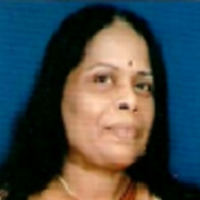Seshendra Sharma
he calls poetry an adventure and believes multiplicity of languages in india is the root of all social evils.
in fact, for immensely –respected telugu poet, critic and scholar gunturu seshendra sharma, love for poetry and nature, and concern for the problems in society have been the driving forces in his five-decade-long literary career.
“ i am a victim of beauty-it chases me like a hunter chases a wild animal. but i walk into its trap willingly as i experience a strange pleasure in it incomparable to any other.’ the sahitya akademi award-winning poet says about his inspiration for writing poetry.
widely-traveled poet sharma is credited with the revival of modern telugu poetry, and his munday suryudu (burning sun), rakta rekha (arc of blood) and the magnum opus naa desham naa prajalu (my country-my people) are treated as bench-marks of modern indian poetry.
“the unknown beckons the searcher with its beauty, but it is doubtful whether he is successful in capturing it fully though it exists every where.” mr. sharma
a former civil servant, says about his source of inspiration.
“if you do not seek anything and do not sharpen your eye, you will be left gorging only the familiarities,” he told a audience at a sahitya akademi programme recently.
relating how he draws his inspiration from the mundane, mr. sharma says, “once while going to the airport in madras i saw a woman dressed in rags with a naked child in her arms, begging on the roads. and i wrote: the child in the womb/better it remains in the womb in our country/otherwise, if it cries of hunger/ people will show it the way to the footpaths and not to the fields.”
his love for nature and corresponding concern for the deteriorating environment is reflected in another of his poems, written once again, during his journey through a forest by road.
it says, “chased away by the human bazaar, silence fled to the hills.. i measure the forest with a song of a bird or with a melody of a meandering brook.”
called a rare combination of a poet and critic, mr. sharma was born on october 20th, 1927 at nagaraajupadu in nellore district of andhra pradesh.
he translated mathew arnold’s version of the persian epic shahnama into sohrab
his first collection of prose poems “shesha jyotsna” came out in 1972 in telugu6 and english bilingual edition.
then in 1974, came munday suryudu and rakta rekha, which created a stir in the telugu literary world for their erudite and pro-profound expressions. both are now considered classics of modern indian poetry.
next year he came out with naa desham naa prajalu which has been hailed as landmark by poet-critics like ali sardar jafri, virendra kumar jain and dr.vishwambharnath upadhyay.
he won the sahitya akademi award in 1994 for kaala rekha (arc of time), which, incidentally, is not a poetry collection but comprises 25 critical papers presented in seminars on topics like ancient drama, comparitive literature, classical poetry and modern writing.
upadhyaya once described mr. sharma thus, “ he is not a mere medium of the age, but the architect of the spirit of the age.”
while another litterateur-critic c.n. sastry said, “ his emergence is to be hailed as a significant landmark in the history of modern telugu poetry.”
sharma who has visited many countries including greece germany, mauritius, madagascar, kenya, france and italy, believes, “ poets want to cross the barrier of languages, i cannot tolerate to be referred to as a telugu poet- a poet is a poet in a any language
incidentally, sharma is a proponent of one common language in india, which once spoken by, he believes will solve most of the socio-political problems of the country.
why so many languages, select one language for the country.” he says in his poetic innocence, and refers to the e biblical story of the tower of babel. “ unfortunately, in our country people are too much in love with their respective languages.”
“ man is superior to language, but he now is being dominated by the latter,” he says adding “ but do not misunderstand me.”
-uttapal bhorpujari
the pioneer
daily news paper
new delhi: 14th december 1996
Powered by Froala Editor



.jpg)
LEAVE A REPLY